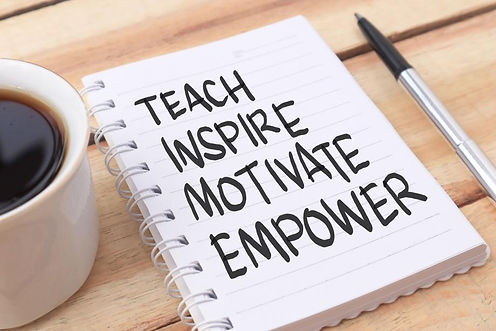Bullying And Harassment Training/ Active Bystander Training
The Importance of Progression and How You Can Make A Difference
In the context of the Ministry of Defence (MoD), the Army, Navy, and Royal Air Force (RAF), being progressive and aware of our behaviours becomes even more crucial. These institutions play a vital role in ensuring the safety and security of the nation and its people. Therefore, they must strive to create an inclusive and supportive environment in line with their core values that fosters diversity, equality and respect for all individuals.
One of the main reasons why being progressive and aware of our behaviours is essential in the MoD and the armed forces is the fact that they rely heavily on operational effectiveness and teamwork. The success of military operations often hinges on effective communication, trust, integrity and loyalty among diverse groups of individuals. Further a toxic culture can impact on attracting a diverse and talented pool of potential recruits, vital for the future vision of the military.
By embracing diversity and adopting an inclusive culture, the MoD can leverage the unique perspectives, skills and experiences of its personnel, enhancing their collective capabilities and overall operational effectiveness.
Moreover, an inclusive learning environment within the MoD, Army, Navy and RAF is crucial for attracting and retaining talented individuals. By valuing diversity and promoting equal opportunities, these organisations become more appealing to a broader range of people who bring diverse backgrounds, talents, and ideas. This, in turn, helps to build a stronger and more skilled workforce, enhancing the overall capability of the armed forces.
Inclusive cultures also encourage different perspectives and talent. When individuals from different backgrounds and with varied experiences come together, they bring a wide array of perspectives and approaches to problem-solving and teamwork. This diversity of thought can lead to more innovative solutions, improved strategies, and greater adaptability in the face of evolving challenges. By fostering an environment that values and embraces diverse perspectives, the MoD and armed forces can effectively adapt to changing circumstances and maintain a competitive edge.
Building an inclusive workplace culture within the MoD and armed forces is undoubtedly a challenging task. These institutions have complex hierarchical structures and well-established traditions. However, with strong leadership commitment and a comprehensive approach, it is possible to make progress. Values, Standards and Behaviour Policies continue to be developed and implemented to minimise discrimination, harassment and unconscious bias.
Training programmes are often designed to educate all levels of personnel about the importance of inclusivity, unconscious biases and acceptable behaviour. By instilling these values, standards and behaviours from the top down, the MoD and armed forces can foster a culture that actively promotes diversity, equality and respect.

Discover Our Training at The Garnett Foundation
Our bespoke training programmes aim to create culture change and inclusive learning environments by equipping individuals with the knowledge and skills needed to effectively tackle unacceptable behaviours and attitudes.
Our Active Bystander Training is designed to empower individuals to take action when they witness unacceptable behaviours or conflicts between others.
Being a passive bystander can inadvertently reinforce the actions of the perpetrator, and in some cases, bystanders may even be perceived as accomplices. Behavioural interventions, by becoming an active bystander, allows individuals to make a significant impact in supporting the victim and discouraging further misconduct.
As part of the active bystander training provided by The Garnett Foundation, explores acceptable and unacceptable standards of behaviours, providing participants with a toolkit to safely intervene. It emphasises the importance of fostering an inclusive team where everyone feels valued and respected. MOD Inclusive Leaders are also equipped with the skills to effectively support those who have reported, witnessed or been accused of unacceptable behaviours.
By promoting active bystander intervention, organisations can create a culture that encourages individuals to take responsibility for maintaining a safe and respectful work environment.
Bullying and Harassment Training addresses the detrimental effects of these behaviours on both individuals and the overall performance of a team
Bullying and harassment create an unhealthy working culture that can lead to increased absenteeism, lack of trust and the potential of lengthy and damaging complaints. Additionally, it fosters a toxic work environment that negatively impacts the well-being and morale of personnel.
This training focuses on building an inclusive workplace culture and equipping organisations with strategies to tackle bullying and harassment effectively. Participants learn how to challenge unacceptable language, counter micro-aggressions and recognise the responsibility of bystanders in preventing and addressing these unacceptable behaviours. By encouraging an environment where bullying and harassment are not tolerated, organisations can improve employee well-being, enhance team dynamics, and boost overall team performance.
Our bespoke training plays a vital role in creating healthier and more inclusive work environments. By raising awareness, providing practical tools, and emphasising the responsibility of individuals to intervene, they empower organisations to address these issues head-on. Through our comprehensive approach, The Garnett Foundation supports organisations in cultivating a culture of respect, understanding, and support, ultimately benefiting the performance of individuals within the organisation and the organisation as a whole.
If you’re ready to transform your workplace culture, get in touch with our team today. Use the contact form or give us a call on 01494 794 264. If you want to see us in action, take a look at how we do it.
Check out our previous article here.
